The Enigma of the Black Cat: Superstitions, Myths, and Modern Perceptions
“A black cat crossing your path signifies that the animal is going somewhere.”
Groucho Marx
The ethereal beauty and sleek elegance of a black cat have, for centuries, bewitched and captivated the human psyche. However, these feline creatures have also faced a myriad of superstitions and beliefs, some maligning their character and others celebrating their mystique. This article delves deep into the world of black cats, tracing the origins of the prevalent superstitions, understanding the challenges they face in modern shelters, and celebrating the cultures that revere them.
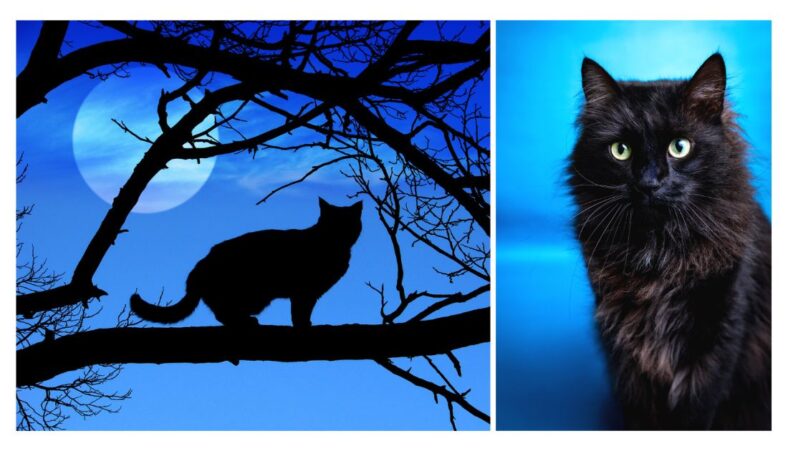
1. Existing Superstitions: Origins and Prevalence
The complex tapestry of beliefs surrounding black cats is rooted in ancient history, and the perception of these felines has evolved over time. Let’s journey through the annals of time to unravel the origins of these superstitions:
Ancient Egypt (c. 3150 – 30 BCE)
Cats, including black ones, were highly revered in ancient Egyptian society. They were considered sacred and were often linked to the goddess Bastet, who was the goddess of home, fertility, and childbirth. Killing a cat, even accidentally, could result in severe punishment.
Medieval Europe (c. 500 – 1500 CE)
The dark ages brought a shift in the perception of black cats. By the 12th century, Europe was rife with superstitions, and black cats became associated with witches, heretics, and the devil. This association grew stronger during the witch hunts of the 16th and 17th centuries. It was believed that witches could transform into black cats to roam undetected. As a result, black cats were often persecuted alongside those accused of witchcraft.
Pilgrim Era in Colonial North America (17th Century)
The pilgrims brought with them to the New World their devout faith and superstitions. Influenced by European beliefs, they viewed black cats as companions of witches or as shape-shifting witches themselves. A black cat crossing one’s path was considered a bad omen, possibly foretelling one’s death.
19th Century Sailors’ Beliefs
While black cats were seen as bad luck on land in many cultures, sailors had a different belief. They thought that having a black cat onboard could ensure a safe voyage. Moreover, a black cat walking away from someone or “crossing one’s path” was seen as a sign of good luck for sailors, contrary to the more common superstition.
Modern Day
In many parts of the Western world, the superstition persists that if a black cat crosses your path, it’s a bad omen. However, in the UK, it’s believed to be a sign of good luck if a black cat walks towards you and bad luck if it walks away.
It’s important to note that the origins of many superstitions are murky, passed down through oral traditions and shaped by societal fears and beliefs. While we can pinpoint certain eras and regions for the evolution of black cat myths, exact years and comprehensive explanations remain elusive.
2. Black Cat Syndrome: The Unfortunate Reality
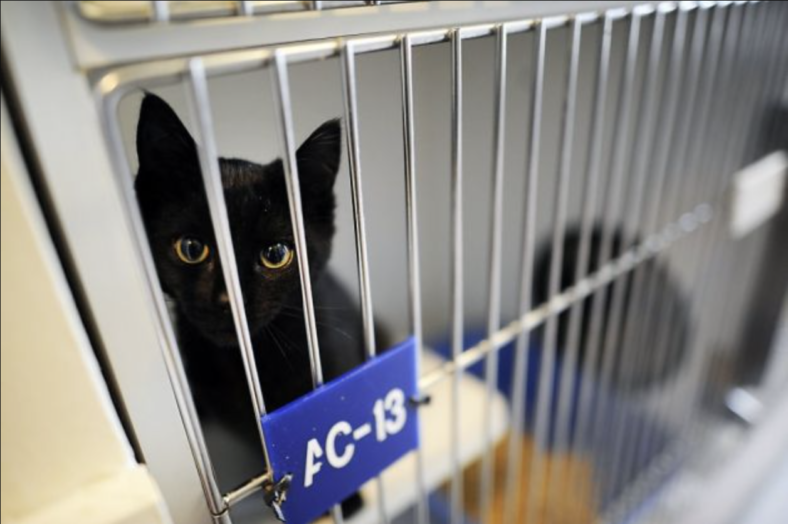
Black Cat Syndrome refers to the phenomenon where black cats (and dogs) are often the last to be adopted and the first to be euthanized in shelters. Several factors contribute to this:
- Visibility Issues: Black animals can often be overlooked in shelters due to the dim lighting.
- Photography Challenges: Black animals don’t photograph as well, making online adoption profiles less appealing.
- Superstitions: As previously mentioned, negative superstitions surrounding black cats can deter potential adopters.
This article in Psychology Today goes over reasons why people do not want to adopt black cats. In a nutshell:
- Black cats are perceived as less friendly and more aggressive than other cats.
- Superstitious individuals tend to view black cats as less adoptable, less friendly, and more aggressive. They also struggle to understand black cats’ expressions.
- The belief that one can’t interpret a black cat’s emotions contributes to biases against them, making them seem less friendly and less adoptable.
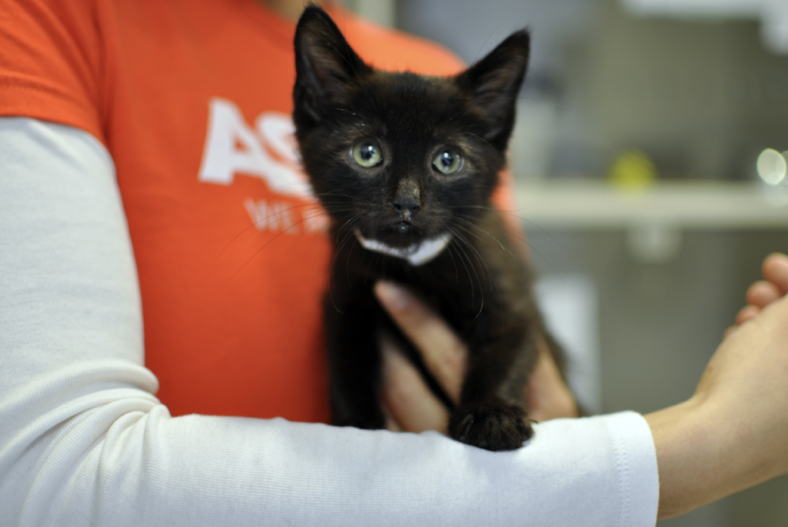
Black Cat Bias
Here’s another study about Black Cat Bias that concluded that black cats, according to both anecdotal and some empirical evidence, face a bias where they are viewed negatively, adopted less, and euthanized more than lighter-colored cats. A study using cat photos found that people with higher superstitions, but not necessarily religious or racially prejudiced, showed a stronger bias against adopting black cats. This bias was also linked to the difficulty individuals had in interpreting the emotions of black cats compared to other cats.
Black Cats Take Longer To Adopt
In a study published in The Open Veterinary Science Journal in 2013, researchers from Colorado State University analyzed data from two Colorado animal shelters to determine the impact of a cat’s coat color on its adoption time. The findings revealed that black cats, irrespective of age or gender, took the longest to be adopted, followed by mostly black cats with some other colors. Cats of other colors were adopted faster. Prolonged shelter stays can adversely affect the health and well-being of black cats. With this knowledge, shelters might allocate more resources to strategies that boost the adoption rates of black cats, reducing their shelter duration.
3. The Halloween Conundrum: The Adoption Dilemma
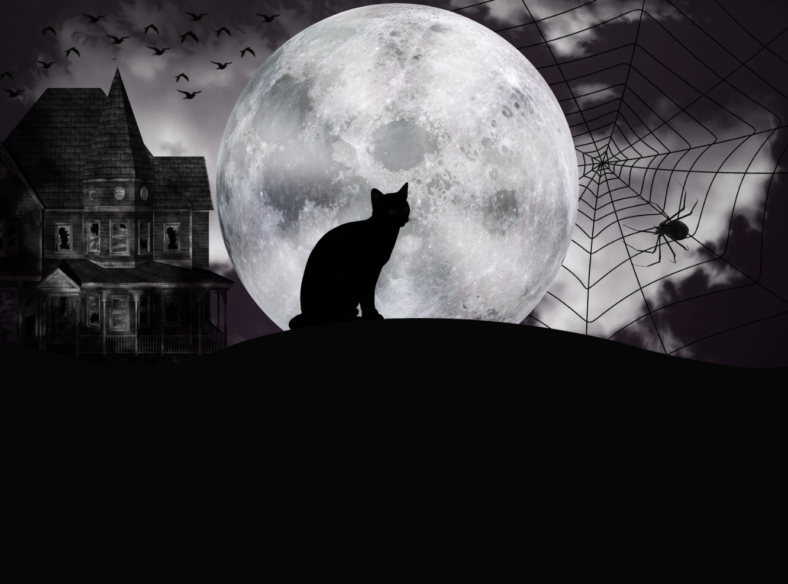
Halloween, with its rich tapestry of myths, legends, and traditions, has a dark side when it comes to the treatment of black cats. There is a belief this association of black cats with witches, superstitions, and the occult makes them particularly vulnerable during the Halloween season.
However, a report by USA Today suggests that the idea of black cats being harmed during Halloween might be more myth than reality. They argue that while the cautionary tales are well-intentioned, they might be perpetuating unfounded fears. The article raises a valid point: by restricting the adoption of black cats during a time when they could find loving homes, are shelters inadvertently reducing their chances of adoption?
Also, Snopes (a website that investigates rumors and urban legends) did a fact check about all of the “alleged” cases of black cat abuse during Halloween. It seems it’s just a bundle of rumors.
????♀️ Should Shelters Pause Black Cat Adoptions During Halloween to Guard Against Malicious Intent?
4. Celebrating Black Cats: Black Cat Day and Black Friday Initiatives
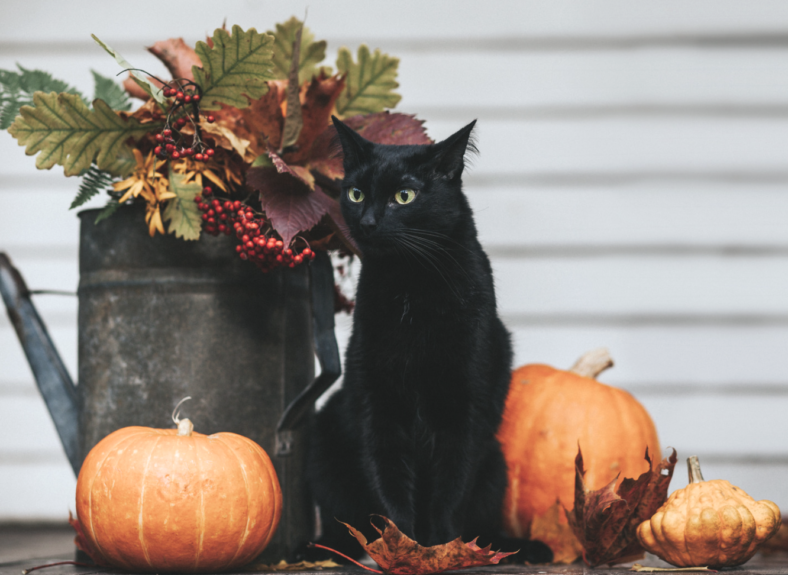
To combat the biases against black cats and raise awareness about their plight, ‘National Black Cat Day’ was established. Celebrated on October 27th in the UK, this day aims to showcase the beauty and charm of black cats and debunk the myths surrounding them.
In the US, on the shopping holiday known as Black Friday, some shelters take the initiative to waive or reduce adoption fees for black pets. This initiative not only provides these animals with a better chance at finding a forever home but also highlights the issues surrounding Black Cat Syndrome.
Here are a few shelters that participate
- San Antonio Pets Alive
- Riverside County Department of Animal Services
- Santa Maria Valley Humane Society
- Liberty Humane Society
- KHS (specific location not mentioned)
- Animal Welfare Department – City of Albuquerque
- Lifeline Animal Project
- BR Animal Shelter
- Jacksonville Humane Society
- Indianapolis Humane Society
- Anne Arundel County Animal Shelters
- ACCT Philly
- Fairfax County Animal Shelter
- HumaneCNY
- Lynchburg Humane Society
5. Good Luck Charms: Where Black Cats are Revered
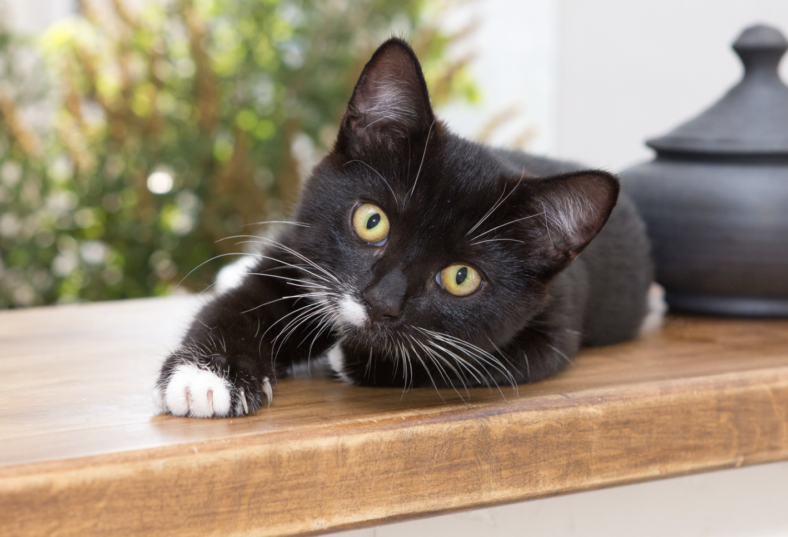
In many cultures, black cats are not symbols of bad luck but are instead celebrated:
- Japan: Here, black cats are believed to bring good luck, especially to single women. Owning a black cat is said to attract potential suitors.
- Scotland: As mentioned earlier, a black cat’s arrival at one’s home is seen as a sign of forthcoming prosperity.
- Russia: All cats, including black ones, are seen as lucky.
The history and beliefs surrounding black cats are as rich and varied as their shiny coats. While some superstitions have cast them in a negative light, many cultures revere them as symbols of good fortune. As we approach Halloween, it’s essential to remember the real cats behind the myths and give them the love and respect they deserve. After all, every cat, regardless of its color, is a creature of beauty and deserves a loving home.
Related Article:
- Should Shelters Pause Black Cat Adoptions During Halloween to Guard Against Malicious Intent?
- The Cat Test – A Feline-Friendly Guide to Finding the Perfect Canine Companion
- 26 Pound Stray Cat Finds The PURRFECT Home.
- Barn Cat Programs: Finding Feral Felines Homes and Purpose
- Finally! Proof That Dogs Are Better Than Cats!




